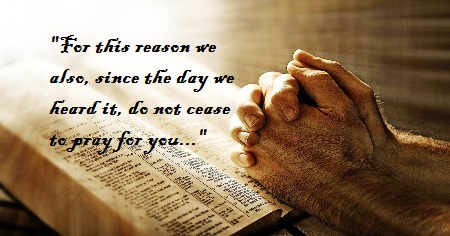1 Samuel 8 records God’s people requesting a king. The request came from a desire to be like the surrounding nations. Israel had no physical king, but were given judges. Although God served as their king, and was continually faithful to them given their own faithfulness, they were not content. The attitude they expressed is …
Continue reading Sermon: That We May Be Like All the NationsThe “day of the Lord” was used in the Old Testament in reference to days of destruction, revenge, punishment, and also deliverance. It is used in the New Testament to refer to the second coming of Christ when He will judge the world – sentencing everlasting punishment to evil doers, and everlasting salvation to the …
Continue reading Sermon: The Day of the Lord“I charge you by the Lord that this epistle be read to all the holy brethren” (1 Thessalonians 5:27). Paul did not simply request that the brethren read the epistle, but commanded them to do so. Some view the reading of scripture as optional. Some who read do so casually, as if it does them …
Continue reading Facebook: A Charge to ReadThe previous verses contained Paul’s explanation concerning that of which the Thessalonians were ignorant (cf. 4:13-18). The current text serves as a reminder of things of which the brethren were already informed – the coming of the Day of the Lord, and the conduct to be assumed by those who look forward to that day. …
Continue reading 1 Thessalonians 5:1-11The Hebrew word, “hesed,” is found in the Old Testament 247 times. Many times, it is translated into “lovingkindness.” However, because of the deep meaning found in the Hebrew, it is also translated into several other English words (mercy, kindness, faithfulness, goodness, etc.). It is not only a central theme of the Old Testament, but …
Continue reading Sermon: Lovingkindness (Hesed)“Give thanks to the Lord, for He is good, for His lovingkindness is everlasting” (Psalm 136:1, NASB). Psalm 136 is a great manifestation of the constancy of God’s lovingkindness (translated “mercy” in the NKJV). This concept of “lovingkindness” denotes the condescension of the transcendent Creator in love, mercy, goodness, and loyalty to His creation as …
Continue reading Facebook: “His lovingkindness is everlasting”The apostle Paul began his letter to the saints in Colosse by mentioning his avid intercession on their behalf (cf. 1:3). Before detailing the prayer, he explained the reason he prayed for them (cf. 1:4-8). Having heard of their faithfulness in Christ after the preaching of the word by Epaphras, he continually thanked God, and …
Continue reading A Prayer On Behalf of the ColossiansLike he did with all of his epistles, Paul identified himself as the author. Along with him in his ministry, although not necessarily in writing the epistle, was his close companion Timothy. Paul had not founded the church in Colosse, nor is it likely that he had seen them personally, yet his love for them …
Continue reading Colossians 1:1-8“Christianity, if false, is of no importance, and if true, of infinite importance, the only thing it cannot be is moderately important.” – C.S. Lewis It is a shame that so many express an attitude of indifference toward Christianity. For some, it is not a matter of unbelief (in the most general sense), but is …
Continue reading The Patternists: No Middle Ground“I have made a covenant with my eyes; Why then should I look upon a young woman?” (Job 31:1). It is important that we commit ourselves to righteousness. In doing so, we must learn how to avert our eyes. We must not look into various things if we seek to please God. Ppt: A Covenant …
Continue reading Sermon: A Covenant With My Eyes




